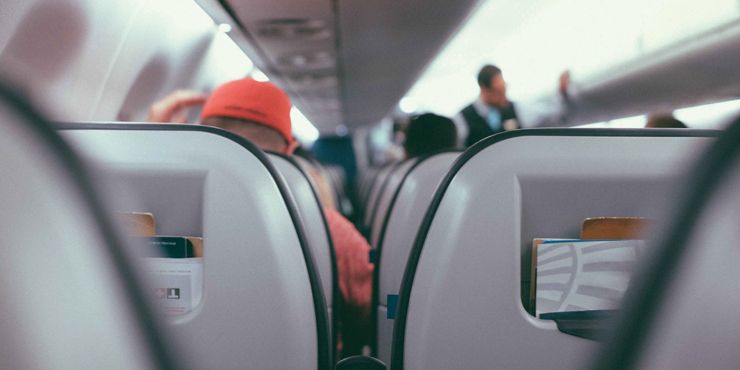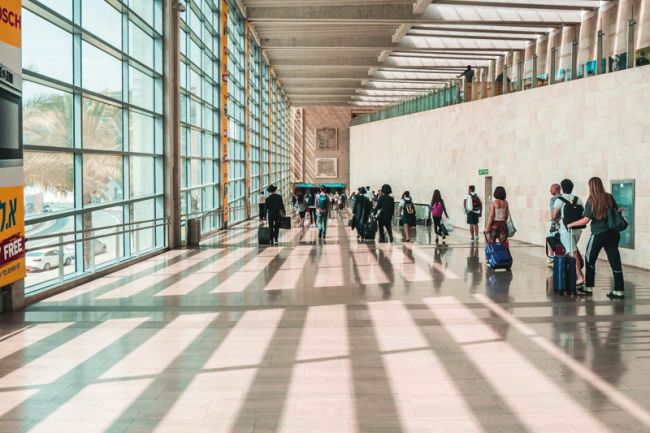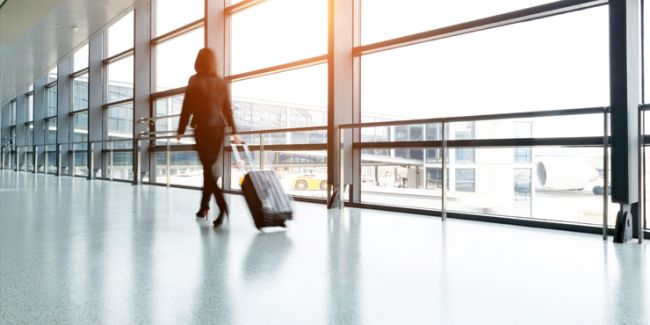Air passenger rights in the context of COVID-19
COVID-19 has had a huge impact on aviation, as national governments introduced different measures to limit the spread of the virus.

Over the last few months, the COVID-19 pandemic has had a huge impact on aviation, as national governments introduced different measures to limit the spread of the virus, including travel restrictions and border controls. The vast majority of scheduled flights were cancelled, with air traffic in Europe down -88% in April 2020 compared to April 2019 according to EUROCONTROL. A gradual recovery since then saw -51% fewer flights in August 2020 compared to August 2019. However, in response to COVID-19 outbreaks across Europe since mid-August, uncoordinated national restrictions have been imposed again (e.g. quarantine requirements) – often with very short notice – leading to confusion amongst passengers and airlines, and more flight cancellations.
Regulation (EC) 261/2004 specifies rules on compensation, reimbursement and assistance in the event of denied boarding, cancellations, long delays and involuntary downgrading. In March 2020, the European Commission issued interpretative guidelines1 to support the application of air passenger rights (and rights in other modes) in the context of the developing situation with COVID-19. The guidelines clarified that the current circumstances are “extraordinary”, with the consequence that certain rights – such as compensation in case of a flight cancellation less than two weeks before departure – may not be invoked. However, the obligations of airlines concerning the reimbursement or re-routing of passengers in the case of flight cancellations are unchanged.
Given the current operating environment, there may be significant practical difficulties for airlines to provide alternative flights, so reimbursement may be the only practical option available for passengers. It is open for airlines to offer incentives to passengers to encourage them to fly at a later date, for example through providing vouchers of a higher value. However, it is important for the options available (i.e. vouchers or a refund) to be clearly communicated so that passengers who would like a refund can get one.
Nevertheless, in an effort to protect their liquidity during these unprecedented times, different airlines adopted different approaches:
- Some were clear about the options available to passengers (i.e. vouchers or a refund) and made them easily accessible;
- Some promoted vouchers in the first instance, but did offer refunds after additional passenger efforts or telephone calls; while
- Others offered vouchers only despite the rules in place.2
In July 2020, the UK Civil Aviation Authority (CAA) – the UK’s National Enforcement Body (NEB) with respect to Regulation (EC) 261/2004 – published a compliance review3 of how well airlines were dealing with refunds. Its review identified that three airlines were doing a good job of refunding passengers in a reasonable timeframe and were making it relatively easy to request a refund. However, the review also identified a number of compliance issues. The CAA worked informally with airlines to achieve improvements for passengers, ensuring that they were offering the choice of a refund and making it clearer to passengers what their options were and how to request a refund. It also achieved improvements in call centre performance and commitments from a number of major airlines to speed up the time taken to process refunds. Based on complaints data the CAA received, it issued warning letters to around 30 other airlines setting out its expectations of compliance.
Despite the improvements in the availability of refunds and the Commission’s recommendations on vouchers4, press reports5 suggest that passengers continue to experience difficulties with respect to vouchers and unexpected complexity when attempting to redeem them as flying tentatively resumes. Complexity and fragmentation were two of the characteristics of the air passenger rights framework that Steer’s comprehensive study for the European Commission highlighted. Published in January 2020, the study provided a detailed assessment of the pre-COVID-19 situation across Europe and considered the perspective of passengers, airlines, airports and authorities. It demonstrated that it remains difficult for passengers who experience disruption to enforce their rights due to the complexity of the regulatory setting and the lack of information. At the same time, the burden faced by airlines in fulfilling their passenger rights obligations had grown materially in recent years, even before the COVID-19 crisis.
In March 2013, the European Commission proposed a revision of Regulation (EC) 261/2004 which aimed to ensure improved rights, and better and more consistent application and enforcement of these rights. The proposal had been on hold between 2015 and 2019 when the Finnish presidency of the Council restarted discussions. Drawing on the findings of the Steer study, in early 2020 the Croatian presidency made further progress, putting forward new compromise proposals with the objective of reaching a general approach within the Council. The legislative process continues, meanwhile the COVID-19 crisis has further highlighted the need for a simple, clear and enforceable framework of air passenger rights that balances the protections for passengers and the obligations of airlines.




















